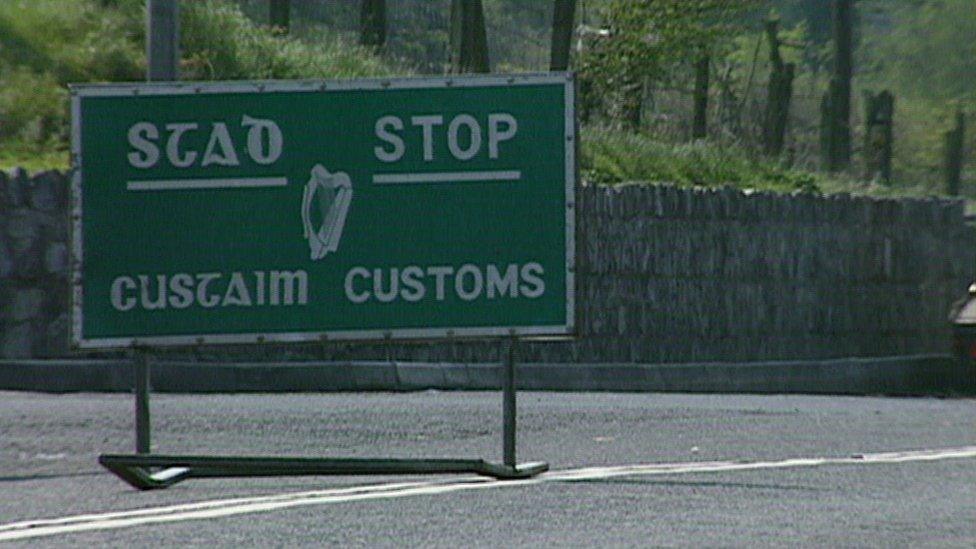Brexit: Hard border for island of Ireland says Sinn Féin
- Published
- comments
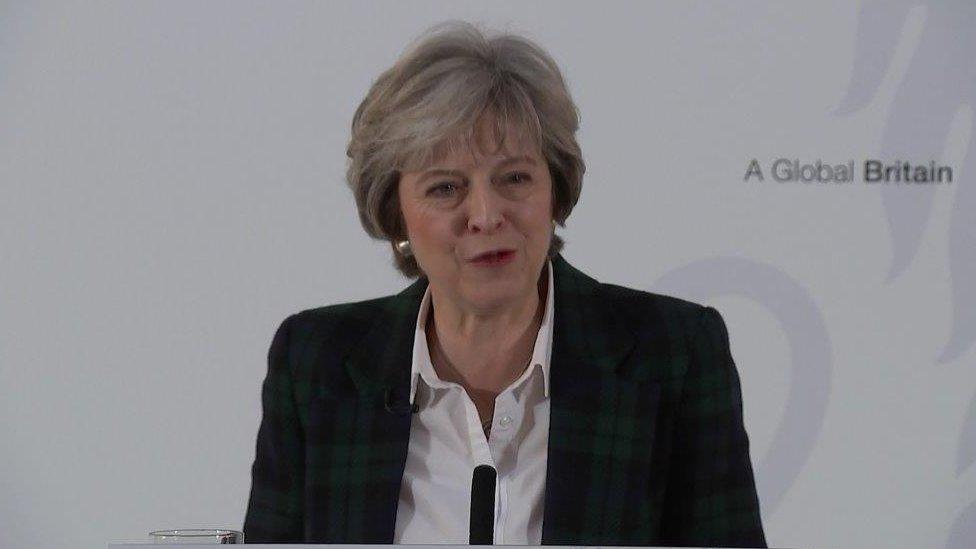
Mrs May said no-one wants a return to the borders of the past
Exiting the European Customs Union creates a "hard border on the island of Ireland", Sinn Féin has said.
Outlining her plans for the UK leaving the EU, Theresa May said Brexit means leaving that union.
It currently allows tariff and paperwork-free trade between the UK and the Republic of Ireland.
But the prime minister said: "Full membership of the customs union prevents us from negotiating our own comprehensive trade deals."
She said she would now seek to negotiate a new customs deal with the EU, which would allow tariff-free trade to continue.
However, if a deal cannot be achieved it could lead to the return of some form of customs checks along the Irish border.

Posting on social media, Former Deputy First Minister Martin McGuiness said "a border of the future is coming at us".
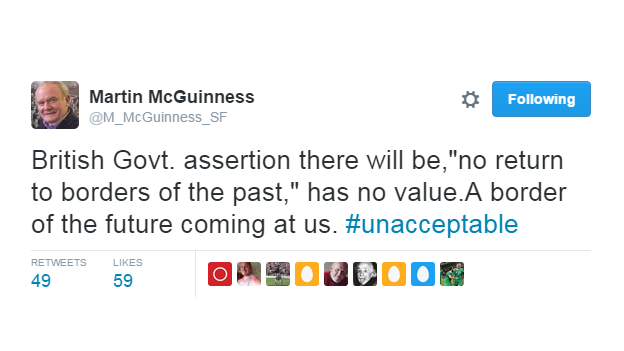

What is a customs union and why does it matter?
A customs union, external is a form of trade agreement between two or more countries.
It means they decide not to impose tariffs (taxes on imports) on each other's goods and agree to impose common external tariffs on goods from countries outside their customs union.
Setting common external tariffs is what distinguishes a customs union from a free trade area, external.
The key argument for leaving the customs union is that it will allow the UK to negotiate its own trade agreements.

Reacting to the Brexit speech, Sinn Féin MLA John O'Dowd said: "Exiting the single European market, exiting the customs union, creates a hard border on the island of Ireland.
"Warm words, soft words from Theresa May mean nothing."
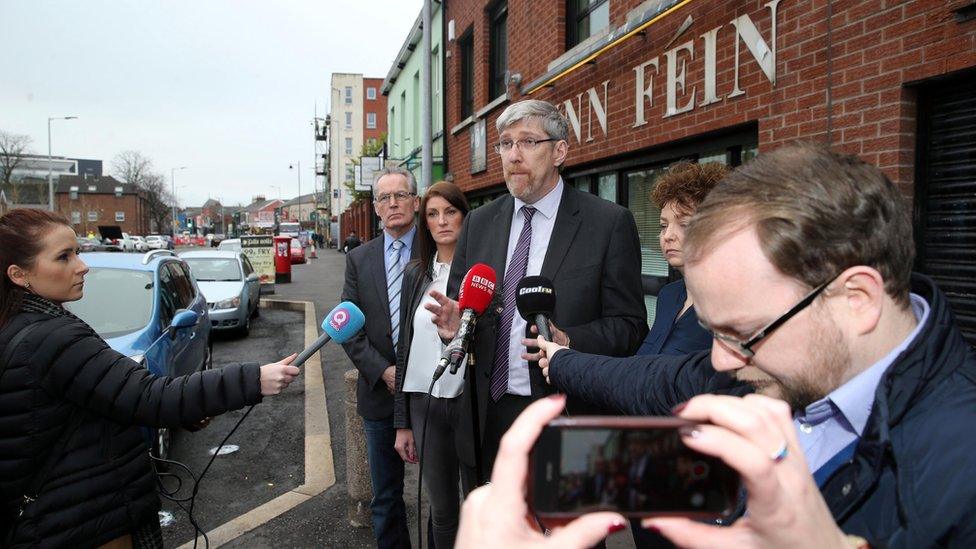
Sinn Féin MLA John O'Dowd said it was clear the views of people in NI were being ignored
He added: "Her intentions to leave the Single European Market and her intentions to leave the customs union are going to have a detrimental impact on the economy in the north and across this island.
"It's clear today from Theresa May's Brexit statement that the views and opinions of the people of north have been completely ignored."
SDLP leader Colum Eastwood said "nowhere will be more damaged" by the plan outlined by Mrs May than Northern Ireland.
"If the British Government can negotiate special arrangements on the common travel area, they can negotiate special arrangements for trade and customs.
"No free trade customs access across the island means a hard Brexit in Ireland. It means a hard border."
'Deeply concerning'
DUP MP Sammy Wilson said the prime minister's statement would give the business community "more certainty".
"I further welcome that the prime minister has set out her plan for an ambitious Free Trade Agreement with the European Union, whilst here in Northern Ireland we will also maintain the Common Travel Area with the Republic," he said.
"It must be pointed out we are leaving the European Union not Europe. Sinn Féin and others complain that her statement will mean a hard border, however, they now have no input as a result of bringing the assembly down."
UUP economy spokesperson Steve Aiken said his party welcomed the prime minister's intention to retain the Common Travel Area between the UK and the Republic of Ireland.
He also said it was "deeply concerning" that "there is no one expressing the unique needs" of Northern Ireland after the dissolution of the Stormont assembly.
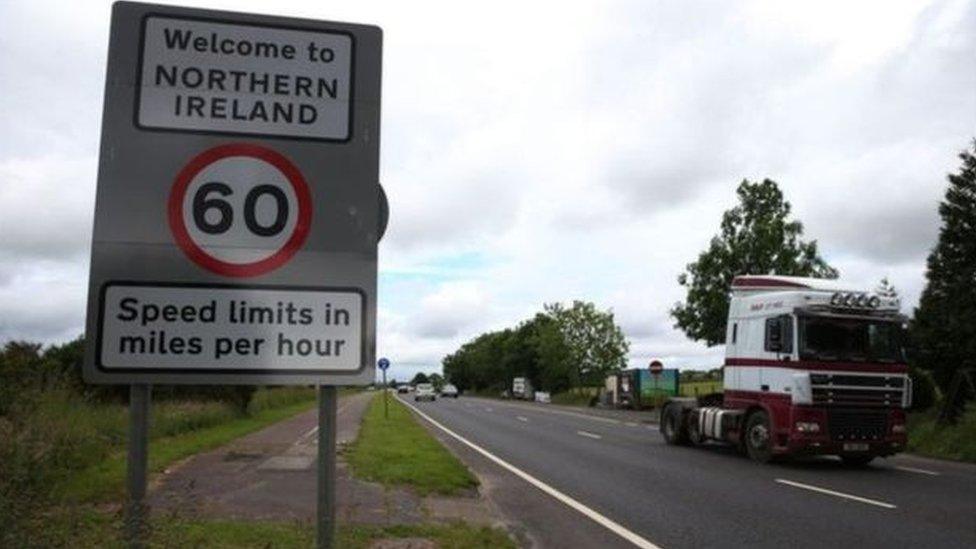
The prime minister said maintaining the common travel area between the UK and Republic of Ireland would be a priority during Brexit negotiations
Alliance Party deputy leader Stephen Farry described Mrs May's speech as "catastrophic for Northern Ireland".
"Any departure from the customs union and the single market will necessitate a formal border either across the island of Ireland or down the Irish Sea."
He added: "A one-size-fits-all Brexit is just not practical. There are too many factors and circumstances particular to Northern Ireland.
"Yet, these have not yet been recognised and respected by the UK government."
'Alarming for businesses'
Taoiseach (Irish prime minister) Enda Kenny said he welcomed the "clarity" brought by Mrs May's speech.
However, he was criticised by Micheál Martin, the leader of the Republic's main opposition party Fianna Fail, who said Mrs May may be speaking softly but was acting in her own national interest.
He said Mrs May wanted to have her cake and eat it in her approach to Brexit.
The British and Irish Chamber of Commerce said the prime minister's pledge on leaving the customs union and EU single market would be "alarming for businesses".
The Northern Ireland Independent Retail Trade Association (NIIRTA) said governments in London, Dublin and Belfast must "ensure that Brexit does not result in the hardening of the border and that no barriers whatsoever are placed on trade or workers across the EU".
A group that represents Irish business, IBEC, hit out at the speech on social media saying "(The) UK's aggressive Brexit approach risks damaging UK-Irish relations."
'Important priority'
During her speech earlier on Tuesday, the prime minister said maintaining the common travel area between the UK and Republic of Ireland would be a priority during Brexit negotiations.
She said: "No-one wants a return to the borders of the past.
"Our guiding principle must be to ensure that as we leave the European Union no new barriers to living or doing business within our own union are created.
"The United Kingdom will share a land border with the EU and maintaining that common travel area with the Republic of Ireland will be an important priority for the UK in the talks ahead."
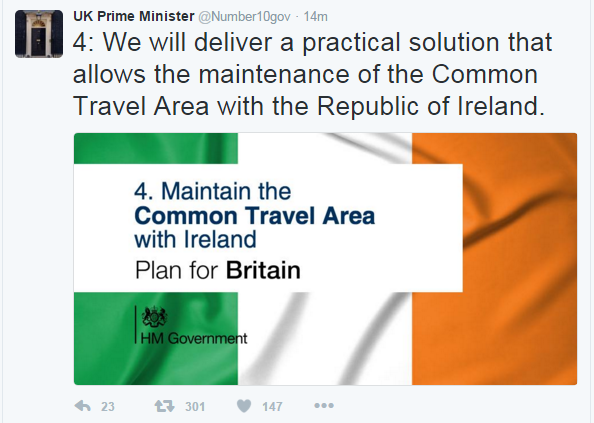
In a statement, a spokesperson for the Irish government said that while the prime minister's comments may be seen as a warning of a "hard Brexit", Dublin has been preparing for all possible models of future UK-EU relations.
Mrs May also said she hopes that the "main parties" in Northern Ireland will form a government as soon as possible in the "spirit of unity".
She added that the UK government had received papers from Scotland and Wales on Brexit, but did not mention receiving any papers from Northern Ireland.
NI Secretary James Brokenshire was legally obliged to call for the 2 March vote on Monday after the executive collapsed over a botched green scheme.
Stormont was plunged into crisis after the resignation of Martin McGuinness as deputy first minister last week.
- Published17 January 2017
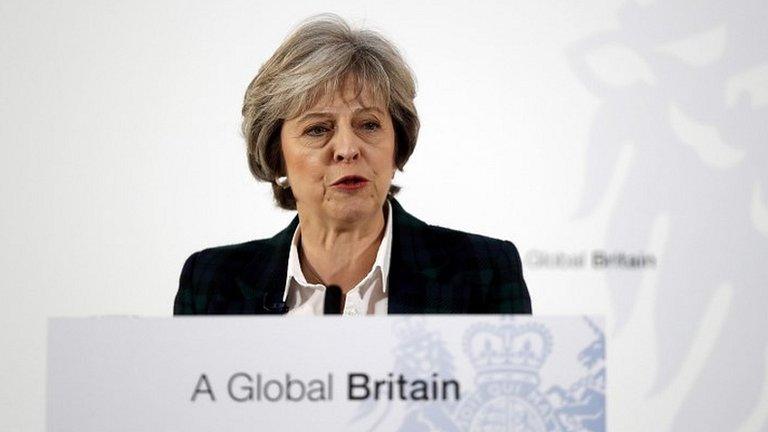
- Published16 January 2017
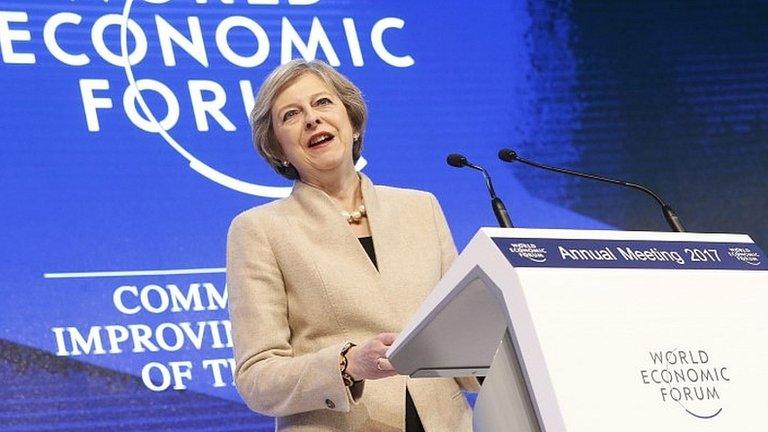
- Published28 July 2016
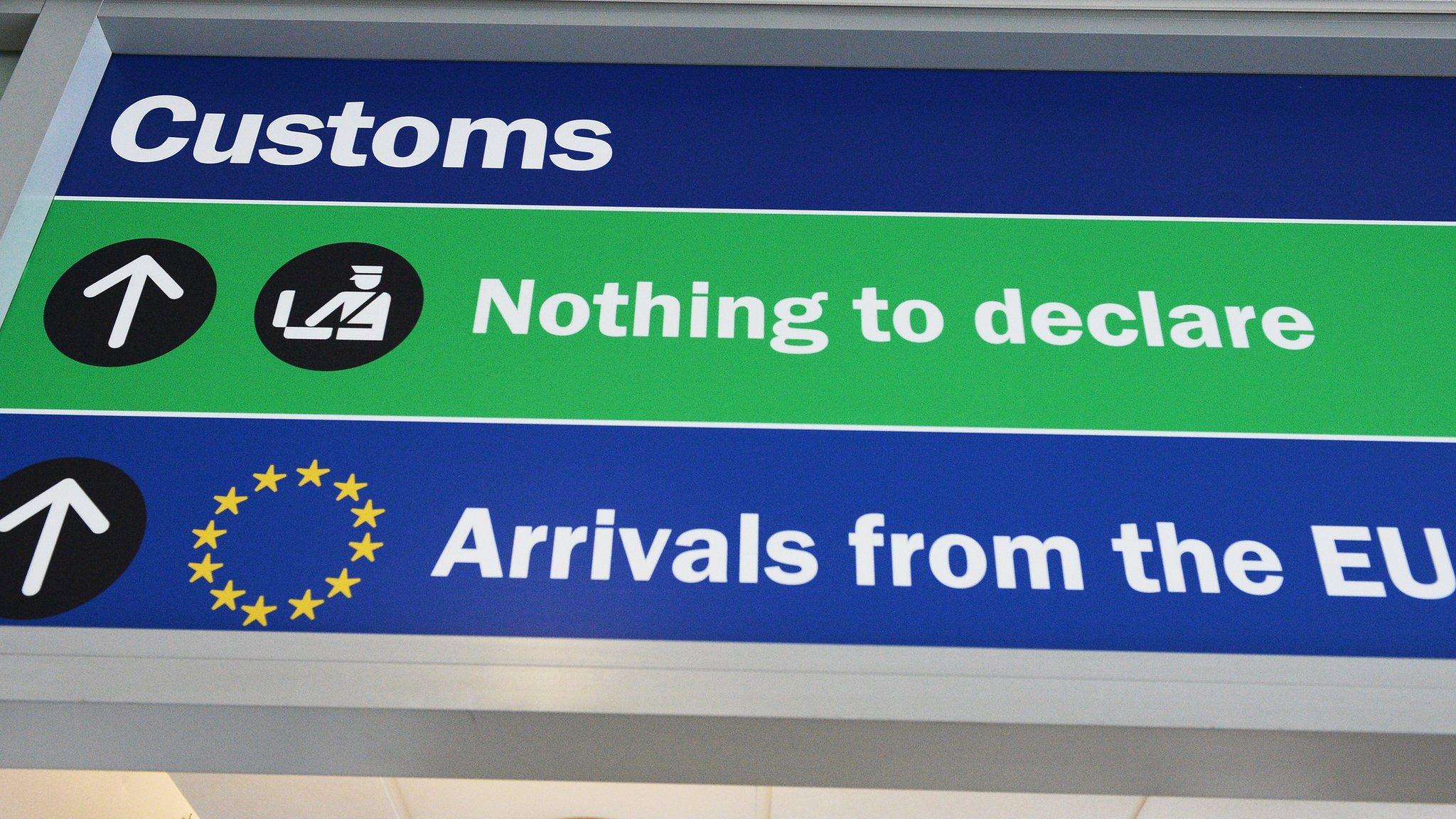
- Published17 November 2016
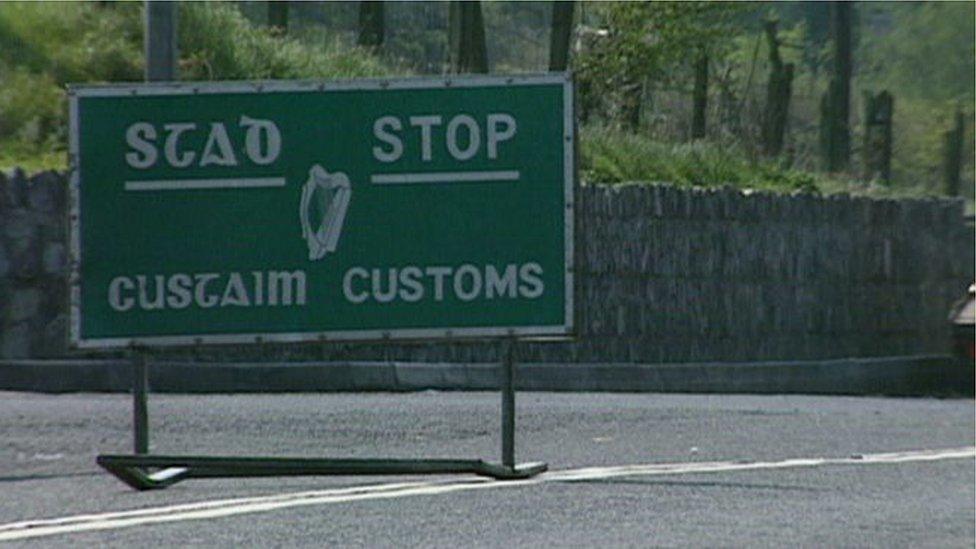
- Published5 September 2016
